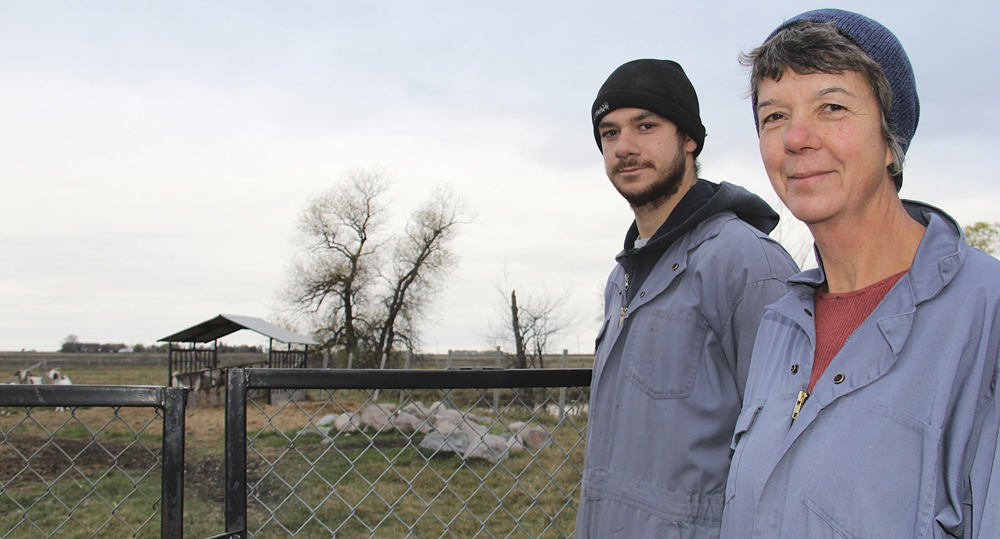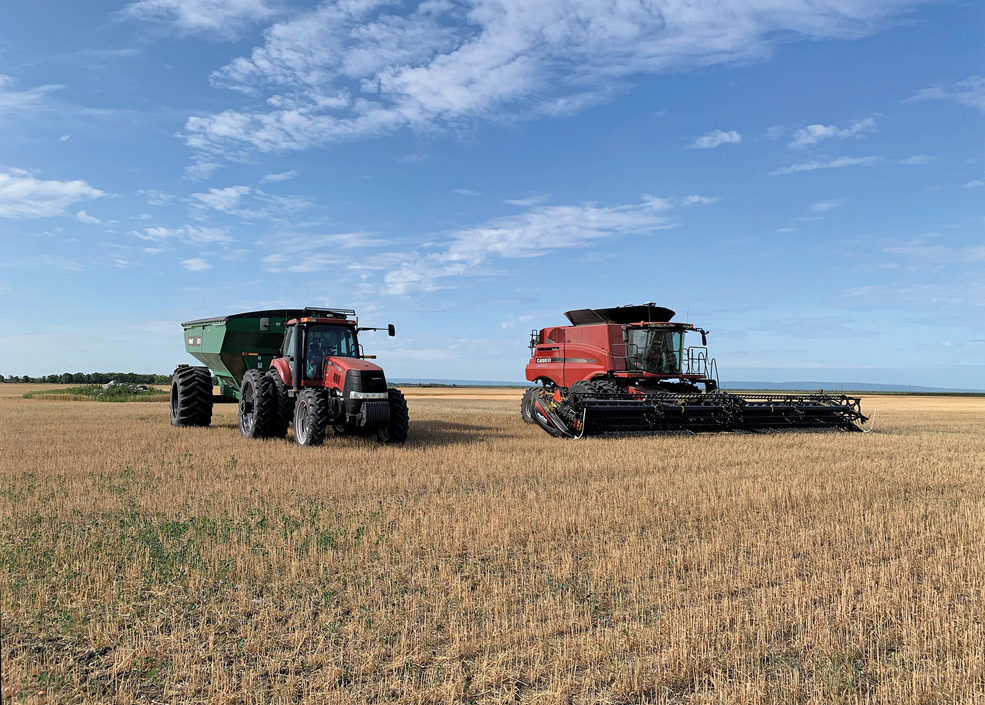Andreas Zinn grew up on a farm in the breeder pullet business, but as a youngster he was mostly interested in his mother’s backyard flock.
He’d eventually decide to farm. It was that flock that influenced him most, says Zinn.
“I could see both management systems and the benefits of each,” he says. “But I saw the greater benefit in the free-range small-scale operation.”
It was after getting his degree in agriculture from University of Manitoba, that he began taking the farm in an entirely new direction. The pullet barn is gone after they sold their quota in 2006. Zinn and his mother, Monika, now operate a multi-livestock farm raising a small herd of Berkshire pigs, plus chickens for meat and eggs, a few rabbits, and a small goat herd.
Read Also

Tie vote derails canola tariff compensation resolution at MCGA
Manitoba Canola Growers Association members were split on whether to push Ottawa for compensation for losses due to Chinese tariffs.
They buy all the wheat, oats, barley and peas the farm’s animals consume from neighbouring farms and mill it themselves.
But it isn’t just the feed source that makes this tiny 16-acre farm operate primarily on the basis of relationships. One hundred per cent of their production is sold direct to customers who value the Zinns’ husbandry practices, which offer their animals a low-stress free-range environment, with access to pasture.
“We’ve had good sales based off of that,” says Zinn whose production has no other stamp or certification. They are not organic, choosing to buy local grains rather than truck certified organic feed from farther away.
Zinn said he could see nearly a decade ago the advantage to operating a farm based on good husbandry practices and direct marketing.
Good demand
“The interest in local and free range with consumers definitely was picking up and had already got going back in 2008 when we were starting,” he said.
The demand remains very strong, adds Monika Zinn. They operate a community-shared agriculture enterprise (CSA), with customers who’ve purchased shares as pledges to support the farm. They have private individual customers. They sell large volumes at farmers’ markets in Winnipeg — about 8,000 lbs. of various types of meat at the farmers’ markets this year, Andreas estimates — but nearly a dozen restaurants buy even larger amounts.
The Zinns realize they’re advantageously located, being close to Winnipeg, and only 45 minutes away from small abattoirs like Prairie Abattoir in Portage la Prairie and at Waldner’s Meats, the province’s one and only slaughter facility for chicken and turkey at Niverville.
Higher profile needed
Small farms like these need a higher profile, say the Zinns. They’ve got the advantage of nearly 40 years in the business, unlike many new farmers, who are now starting out on small plots and learning to market directly. They’ve farmed this parcel since the arrival of Andreas’s grandparents in mid-1970s, who bought land here after emigrating from Germany.
The mother-son duo welcomes the formation of the new organization Direct Farm Manitoba which they believe will help this type of farming gain more visibility with policy-makers for an improved operating environment to enhance and strengthen it.
DFM merges with SFM
Zinn Farms is precisely the type of farm Direct Farm Manitoba now hopes to woo as it grows the organization. It formed this spring after voting members of the Farmers’ Market Association of Manitoba agreed to expand the former group’s membership criteria and create a more unifying organization to represent the interests of those who produce and direct market their production.
That initially brought FMAM’s existing 40 farmers’ market members under its wing. The organization is now conducting a membership drive to expand its membership base wider. Earlier this fall it announced it will merge with Small Farms Manitoba, an online directory representing some 140 farms. As of January 2017 memberships within that group will expire. Direct Farm Manitoba hopes to sign those operators on as its own paid members.
The multi-stakeholder marketing co-operative offers two membership categories, including one for grouped direct farmer marketers, meaning a farmers’ market or group organized to direct market, and another for individual direct marketers. Membership fees for both classes of membership are $50.
Group is needed
“We’ll see how it all works. We’re assuming that Small Farms Manitoba members will be interested,” says Stefan Regnier, a board member with Direct Farm Manitoba who farms with his parents near St. Xavier operating Blue Lagoon Organics. Their farm is also listed in the Small Farms Manitoba directory.
They’ve been building their farm business since the early 2000s, and “it’s a frustrating business although it can be rewarding too,” says Regnier.
The 2015 report Advancing the Small Scale Food Sector cited multiple challenges facing smaller-scale, direct-marketing farms, from not qualifying for farm support and insurance programs, a regulatory environment more suited for larger companies and lacking visibility among policy-makers.
It identified the small-scale, direct-marketing enterprise not merely as one with a rural address and large garden or small herd or flock, but as a business struggling to grow, and aiming to derive all or part of family income from sales of production.
The report also recommended the formation of a unifying organization to represent the sector.
















